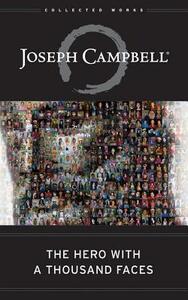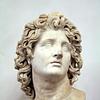Take a photo of a barcode or cover
Campbell has a wonderful way of being able to look at the many seemingly random features of mythology and find the human story beneath. Reading his comparisons of so many myths was a chance to glimpse the common stories that we all experience in our day to day lives.
Since finishing this book, I have also been pleased to see myself applying this type of thinking to science fiction and fantasy novels. It adds a wonderful layer of depth.
Since finishing this book, I have also been pleased to see myself applying this type of thinking to science fiction and fantasy novels. It adds a wonderful layer of depth.
informative
inspiring
reflective
slow-paced
informative
reflective
medium-paced
reads like a literature review of fairy tales. not all bad, although it's brilliant that so many stories overlap in content (without a need for secondary interpretation)
challenging
informative
tense
medium-paced
overrated and overused as the only way to determine the plot for fantasy
I was looking forward to reading this book because I love mythology, and I think there's some truth to mythology holding keys to our subconscious, but I was very disappointed. I found the writing to be a string of chaotic, half developed ideas.
If you're looking for mythology and psychology, I would recommend the show Myths and Monsters. It presents the same ideas as A Hero With A Thousand Faces, only in a more coherent fashion. If you're looking for comparative mythology, I recommend The Ultimate Encyclopedia of Mythology. If you're looking for something to help you write a story, I recommend The Writer's Journey by Christopher Vogler.
If you're looking for mythology and psychology, I would recommend the show Myths and Monsters. It presents the same ideas as A Hero With A Thousand Faces, only in a more coherent fashion. If you're looking for comparative mythology, I recommend The Ultimate Encyclopedia of Mythology. If you're looking for something to help you write a story, I recommend The Writer's Journey by Christopher Vogler.
Been meaning to read this for years. Impressive literature review and span, and tying together of concepts across time and culture.
Mystifying treatment of ancient myths from around the world, with a curious focus on folk and mythic tales of Ireland and the Pacific. In scope I can only compare it to Kenneth Clarke's Civilisation, or perhaps Russell's Philosophy (although Campbell is both less occidental and less patriarchal). However, Campbell's work is more enigmatic.
Both Clarke and Campbell must deal with the same dragon: the shameless triumph of Heroic Materialism: a kind of powerful yet mundane peak to the Western world. Campbell's treatment is most uplifting, yet I am at a loss for worlds to describe what exactly he has said: perhaps Hero with a 1000 Faces is in itself a new myth for our times. Is Campbell a kind of genius of mythology, or is he another trickster or clown of shadow, like Loki of Scandinavia or Edshu of Africa before him?
The text is mostly patriarchal indeed, yet does try to uncover various feminine if not entirely matriarchal figures of lore, in particular of Jainism and of the sun goddess of Japan.
A few minor glitches: at times hops around too much - a paragraph break between China and Ancient Greece would be nice! Sometimes jumps into a quoted poem, without any context. More character names would be good (for example why not name Heimdal etc where-ever they appear?). The Anglicisation of Irish character names is odd and non standard, with very awkward pronunciation guides given (for example, Cuchullain, but then the rough ch- sound is missing from modern English). Why not mention that he is the Hound of Ulster?
All in all, definitely worth a read for anyone curious about story telling and how the various cultural sources of our ever-shrinking world connect together. An eye opener for anyone raised a Christian - and perhaps a shocker for those who yet maintain that faith.
Both Clarke and Campbell must deal with the same dragon: the shameless triumph of Heroic Materialism: a kind of powerful yet mundane peak to the Western world. Campbell's treatment is most uplifting, yet I am at a loss for worlds to describe what exactly he has said: perhaps Hero with a 1000 Faces is in itself a new myth for our times. Is Campbell a kind of genius of mythology, or is he another trickster or clown of shadow, like Loki of Scandinavia or Edshu of Africa before him?
The text is mostly patriarchal indeed, yet does try to uncover various feminine if not entirely matriarchal figures of lore, in particular of Jainism and of the sun goddess of Japan.
A few minor glitches: at times hops around too much - a paragraph break between China and Ancient Greece would be nice! Sometimes jumps into a quoted poem, without any context. More character names would be good (for example why not name Heimdal etc where-ever they appear?). The Anglicisation of Irish character names is odd and non standard, with very awkward pronunciation guides given (for example, Cuchullain, but then the rough ch- sound is missing from modern English). Why not mention that he is the Hound of Ulster?
All in all, definitely worth a read for anyone curious about story telling and how the various cultural sources of our ever-shrinking world connect together. An eye opener for anyone raised a Christian - and perhaps a shocker for those who yet maintain that faith.



